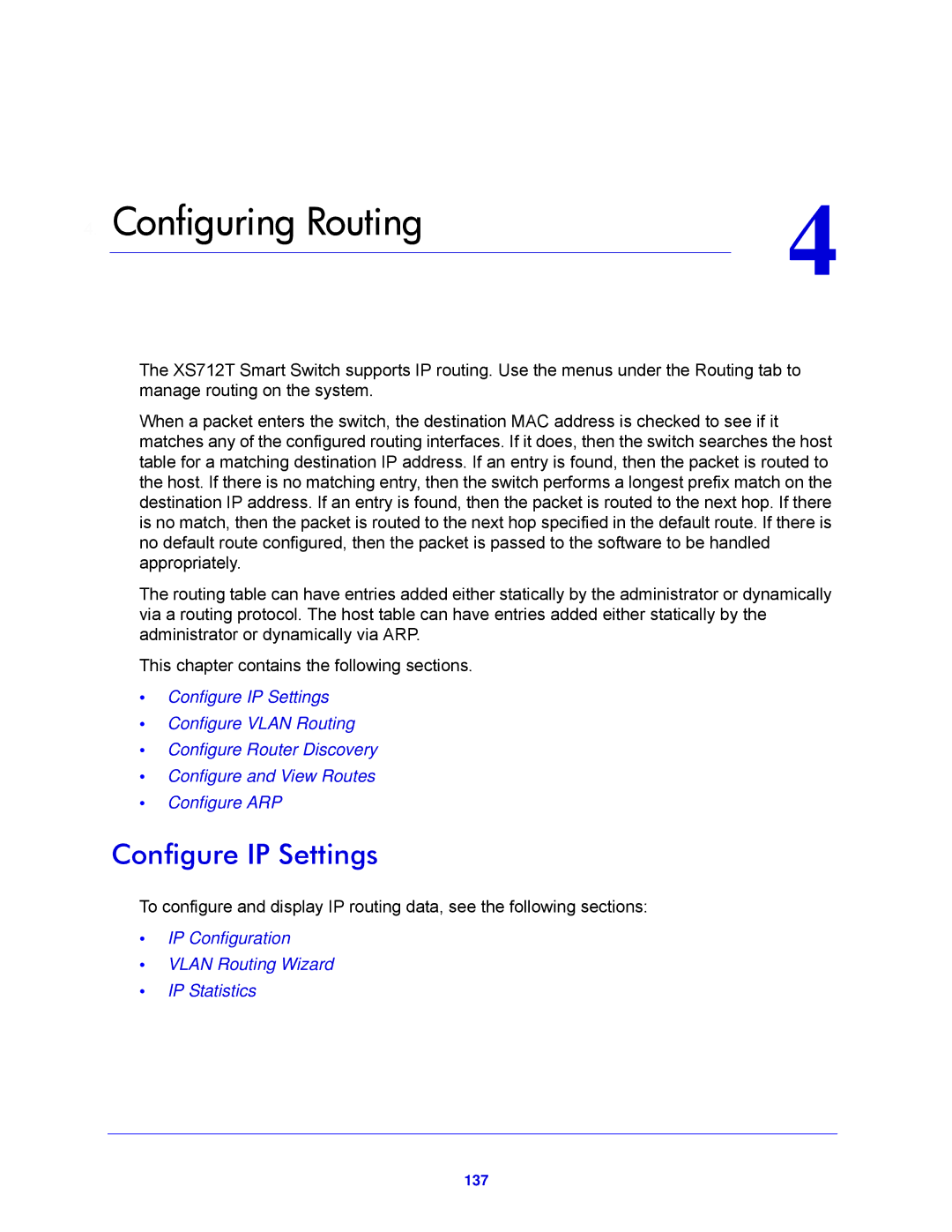4. Configuring Routing | 4 | |
| ||
|
|
|
The XS712T Smart Switch supports IP routing. Use the menus under the Routing tab to manage routing on the system.
When a packet enters the switch, the destination MAC address is checked to see if it matches any of the configured routing interfaces. If it does, then the switch searches the host table for a matching destination IP address. If an entry is found, then the packet is routed to the host. If there is no matching entry, then the switch performs a longest prefix match on the destination IP address. If an entry is found, then the packet is routed to the next hop. If there is no match, then the packet is routed to the next hop specified in the default route. If there is no default route configured, then the packet is passed to the software to be handled appropriately.
The routing table can have entries added either statically by the administrator or dynamically via a routing protocol. The host table can have entries added either statically by the administrator or dynamically via ARP.
This chapter contains the following sections.
•Configure IP Settings
•Configure VLAN Routing
•Configure Router Discovery
•Configure and View Routes
•Configure ARP
Configure IP Settings
To configure and display IP routing data, see the following sections:
•IP Configuration
•VLAN Routing Wizard
•IP Statistics
